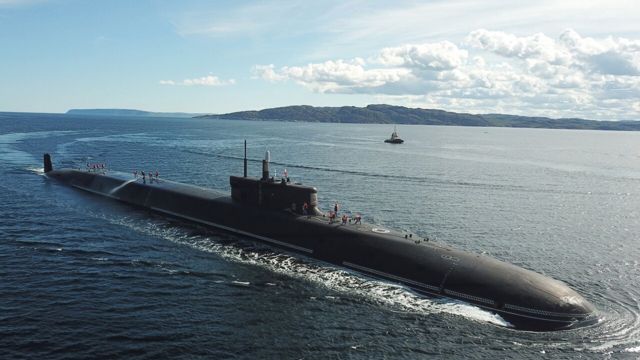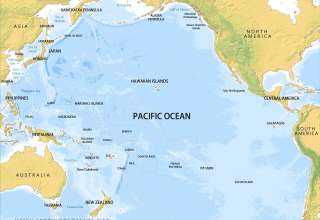By Richard Stone
The continued stalling of Australia’s submarine program and contradictory statements issued by US government officials have revealed deep-rooted Cold War positions with security concerns and reliable allies. The statements, furthermore, have raised serious implications for Australia’s own defence and security, which is supposed to be primarily focussed upon national considerations and sovereignty. To the contrary, Australia’s foreign policies have quite clearly been shown to focus upon ‘US interests’.
Several years ago widespread political agitation, led primarily by trade-unions in South Australia, led to a long term commitment to build submarines at Port Adelaide. The entire submarine program was planned to last about forty years, from initial planning to the final stages. It was supposed to have provided thousands of jobs, including apprenticeships and traineeships, in the direct and indirect employment chain, in an area of South Australia where unemployment and vulnerable work has been commonplace for decades.
The submarine program was also supposed to provide the much needed boost for local TAFE, an area of educational provision aimed primarily for working-class school-leavers and the established trades, which has been systematically undermined or destroyed.
The whole submarine program was publicised, at the time, as being about Australia’s need to update its defence and security provision.
To date, however, the entire program has been stalled, with numerous bureaucratic means, first by the Steven Marshall SA state government and their cronies in federal government in Canberra, and later by decisions taken in the US. Collusion would be an understatement.
Two recent contradictory statements from official sources close to the Biden administration, for example, have now revealed the Cold War position taken by the US government toward Australia.
In early January it was noted by a senior Democrat, Adam Smith, who is a member of the House of Representatives Armed Services Committee, that concerns had arisen with the US not being willing to share ‘top secret military technology with Australia’. (1) The AUKUS security pact which was established by the then Morrison coalition government in Canberra,
had secret negotiations with both the US and UK which ‘also promised greater sharing of advanced technology to integrate the military-industrial bases of the three nations’. (2)
The US, however, have strict rules about the sharing of sensitive technology and intelligence equipment, despite the military jargon of ‘interoperability’ being used by senior government officials. The Pentagon have no wish to cede control of their military facilities which remain fundamental to its neo-colonial global ambition.
Moves by Australia to secure access at the bilateral AUSMIN meetings in Washington last December were unable, furthermore, to formally have the US ‘pare back rules that prohibit US technology export’. (3) They have no wish to do so. The position of the US closely followed Cold War concerns about their own defence and security being compromised by allies. In recent times Australia has been besieged with Cold War allegations, in numerous US-led media outlets, about Chinese spies, although there is rarely, if ever, any evidence provided by so-called journalists.
Shortly after the US government position at the AUSMIN meeting was taken, a move to shift shift attention and not attract unnecessary publicity took place; it was announced, for example, from a rising Republican, Kevin Kiley, that ‘the US should put its own submarine program ahead of Australia’s following concern that American shipyards would struggle to build enough new submarines to satisfy both the Pentagon and Australia’s expectations under the AUKUS security pact’. (4)
The statement followed a leaked letter from two US senators to President Biden early this year which ‘revealed concerns that the US might not be able to supply Australia with nuclear-powered submarines as envisaged under the 2021 AUKUS agreement without jeopardising the US Navy’s requirements of at least two new submarines a year’. (5)
A diplomatic statement from the US Ambassador to Australia, Caroline Kennedy, noted, nevertheless, ‘the US was aware of the problem and working to reform the rules’, reverting to the previous position. (6) Taking the nature of US regulations about the exporting of sensitive military technology, however, the matter may well drag on into another age, continuing the stalling process. Changing US government regulations will require extensive committee procedures and bipartisan agreement in both Washington and the Pentagon in an age when the whole US political system remains bitterly divided. There would appear to be little common ground.
Some serious questions, therefore, arise and include:
if Australia’s submarine program was so important why has this matter now arisen;
just what type of security vetting is the US intending imposing upon the Australian workforce, their family and friends, and the trade-union movement;
In conclusion:
We need an independent foreign policy!
1. US secrecy rules over military tech ‘could scuttle AUKUS’,
The Australian, 13 January 2023.
2. Ibid.
3. Ibid.
4. US ‘needs first before any subs to Australia’,
The Australian, 19 January 2023.
5. Ibid.
6. Australian, op.cit., 13 January 2023.







